friends who weren't too familiar with French cooking.
It's a reliable dish that can be prepared in advance, imparting a soup spoon
of comfort while magically impressing guests with its French label.
While we broke bread and enjoyed the wine and cognac infused stew,
I started thinking about the sometimes negative perception of French food.
Several comments were made during the course of the dinner, mostly fostering
the perception that French food is heavy and loaded with richly convoluted sauces.
Many people, not having the opportunity to savor the culinary genius
firsthand, harbor misconceptions about la cuisine francaise.
In this new progressive age of eating, many discerning diners will likely
avoid French food if they buy into the myth that the cuisine
is uniformly heavy and old fashioned, a pleasurable but
guilty gut-wrenching exercise limited to special occasions only.
Far from the truth, that's a black eye that's totally undeserved.
We've all heard the old wives' tale warning us not to
walk underneath a ladder for fear of bad luck.
That's not too far from the delusional myth that French food is for gluttons only.
Admittedly, I've never met a goose liver I didn't like -- but not all French
feasting is related to foie gras and elaborate sauces from froufrou
chefs wearing tall toques and medals pinned to their chests.
This unfair characterization of French food is not new.
Food crazes come and go.
It's an industry not unlike fashion -- you're in one day and the next day you're out. But great chefs know, there are kitchen basics and there are rules worth breaking.
There is hard work along with fertile fields blessed with abundance from God.
And I can personally attest, France is gifted year after year with all of the above.
Great chefs are born in France and great chefs travel the world
for the golden opportunity to cook in fabled France.
There's an inspiration and a legacy here that fuels the imagination and artistry
of any firebrand who enjoys the creativity and challenge of the food industry.
Chefs know --- the mistaken identity of la cuisine francaise is like honey to a bee. These chefs go out of their way to gather the best of the best and make the most of it.
They do it like they were born to it.
Their scrupulous officials have heaped praise on the gastronomic meal of France. "The gastronomic meal emphasizes togetherness, the pleasure of taste, and the balance between human beings and the products of nature."
That declaration just about sums up French cooking in a nutshell.
La Cuisine Francaise is on the same plane with family & friends.
La Cuisine Francaise = pleasure in the form of taste, smell and presentation.
La Cuisine Francaise translates to a careful nurturing of the planet
and a magnified reverence for Mother Nature.
In return, the land, the chef, the food delivers.
France celebrates her legendary cuisine with
a bounty of food festivals practically year round.
There's a festival for wine, truffles, ham, black pudding, snails, chocolate,
goat cheese, strawberries, oysters, melons, pate, rice, garlic, almonds,
lavender, bread, beer, salt, chestnuts, lemons, onions honey,
herring, carrots...... too many to enumerate.
Carrots, really?
Who gets excited over a carrot?
The French, of course.
Prized carrots can make a dish.
Ever tasted a daube de boeuf aux carottes?
You're sure to gain a new appreciation of the much maligned tuber.
That's one festival I'd like to attend -- a day of devotion, hail to the orange.
Perhaps a carrot parade coupled with dancing in the street and
a carrot eating competition..... hopefully, served with wine.
However they choose to celebrate this annual event, it's very telling that
they celebrate a vegetable as simple as a carrot.
No tasteless carrot sticks covered in peanut butter,
it's a French Revolution I can believe in.
Food is adored in France -- quality celebrated and appreciated.
Food is national pride, a patriotism that everyone can believe in.
over old fashioned, sauce-heavy black tie cuisine, then consider this.
Every region has a different approach to food -- their own claim to fame.
Across the board, the starting gate looks like this:
Menus are based on what's available fresh at market on any given day.
Whether it's oysters, melons or mushrooms, each department in France
creates its own "Best of" list -- and they're not shy about promoting it.
Whether it's asparagus, anchovies or anise,
there's a region and a season that's feted to the nth degree.
If it's fresh and regional, you'll see it on nearly every menu
of every restaurant you encounter in a particular city.
If you desire comfort food, you'll find it --- tartiflette, cassoulet,
blanquette du veau.... Should you prefer a lighter touch,
go for moules marineres, piperade, fish soup or ratatouille.
Humble origins best describe crêpes, pot au feu and choucroute garnie.
And don't discount France's haute cuisine if your pocketbook allows -- soufflé,
sole meuniere, pan seared foie gras, escargot -- all worthy of the haughty name.
Even the joyless prune is celebrated in France.
Don't laugh, unless you've tried an Agen prune, you haven't really tasted a prune.
Regional cuisines each have a specialty for each course,
always based on the riches of the terra firma.
Cherry clafoutis from the Limousin (yes, including the pits),
coq au vin in Burgundy, Calvados in Normandy.
Cherries, local chicken and apples are the foundation for each delectable taste.
Don't even try to separate food from drink.
In the U.S., we lazy cooks look for chicken tenders instead of the whole bird.
That's the perfect description of insanity.
The chicken, though humble, is far more characterful when served unabbreviated.
A plastic chicken tender is just a stinky little piece of pectoral muscle that cooks up fast and tastes like whatever seasoning you use to forgive its blandness.
A whole chicken, on the other hand (as the French would choose), has
layers of flavor and goodness right down to the bone.
Some people absurdly refuse to eat meat on the bone.
They want their food fileted and barren of anything that resembles the animal.
Not so the french.
They want their cheese raw and alive
(though sadly, the EU is making that harder to find).
They demand that their food -- whether meat, dairy or grain -- taste
of its essence, its purity and full character intact.
Sure, they season, sometimes they sauce, other times they bake, broil, grill or
serve up raw -- but still, the most important element of the dish is its in-bred quality.
Michelin-starred temples of haute cuisine -- it's all there and it's yours to choose.
Plan on a variety of tastes.
Admittedly, I'm very fond of "grandma's cooking" -- boeuf bourguignon
or duck confit --- as well as the assimilated cuisines of the former
French colonies --- couscous royale (Algeria) or ca kho to (Vietnam).
The delights of the kitchen are many and I always look for new tastes on each visit.
A trip to Provence brings on a hunger for fresh vegetables and aioli.
A week in Alsace makes me long for tarte flambée and choucroute garnie.
The Pyrenees yield fresh trout and the many pleasures of Basque cuisine
while the sunny skies of the Poitou-Charentes region deliver
incredibly fresh seafood and produce to build a lifetime of food memories.
Start with a glass of Pineau and end with a tumbler of Cognac -- and in between,
sink your teeth into the Marennes oysters and Ile de Re potatoes, salicornia
from the salt marshes and mojhette beans from the Marais Poitevin.
The options are endless.
- Keith Floyd, endearing British celebrity chef who
enjoyed diverse cuisines and a good slurp of wine.
Jacques Pepin to cook for Presidents -- both French & American.
Monsieur Pepin cooked for die-hard traditionalist Charles de Gaulle
and went on to cook for the American middle class at Howard Johnson!
If he could graduate from vol-au-vent in France to fried clams under
the big orange roof --- giving and getting pleasure in the effort ---
then we ought to give up our preconceived notion of snooty French food.
The world has benefited from the school of French cooking.
Ever since Escoffier first developed the idea of cooking stations,
still valued 100 years later -- we've been enlightened.
Published in 1903,"Le Guide Culinary" had Escoffier gifting us
with new techniques and lighter, more refined cooking.
Yet some still cling to old myths.
Then there's Paris.
Always Paris.
From tête de veau (traditional) to stripped down, raw, pickled or smoked nasty
bits and pieces (young & cool), you'll discover the real French cuisine.
If you want a pastrami sandwich, you can find one in Paris.
True, that's not remotely French -- but that's my point.
France celebrates good food. Period.
Although personally, I'd save the pastrami for a trip to New York.
Try the truffled scrambled eggs instead.
Most importantly, don't let food guilt enter your mind
when you have the opportunity to eat "French".
No one has ever gotten pregnant or gone to jail for eating a delicious steak tartare.
"Seize the moment."
"Remember all those women on the 'Titanic' who waved off the dessert cart."
- Erma Bombeck
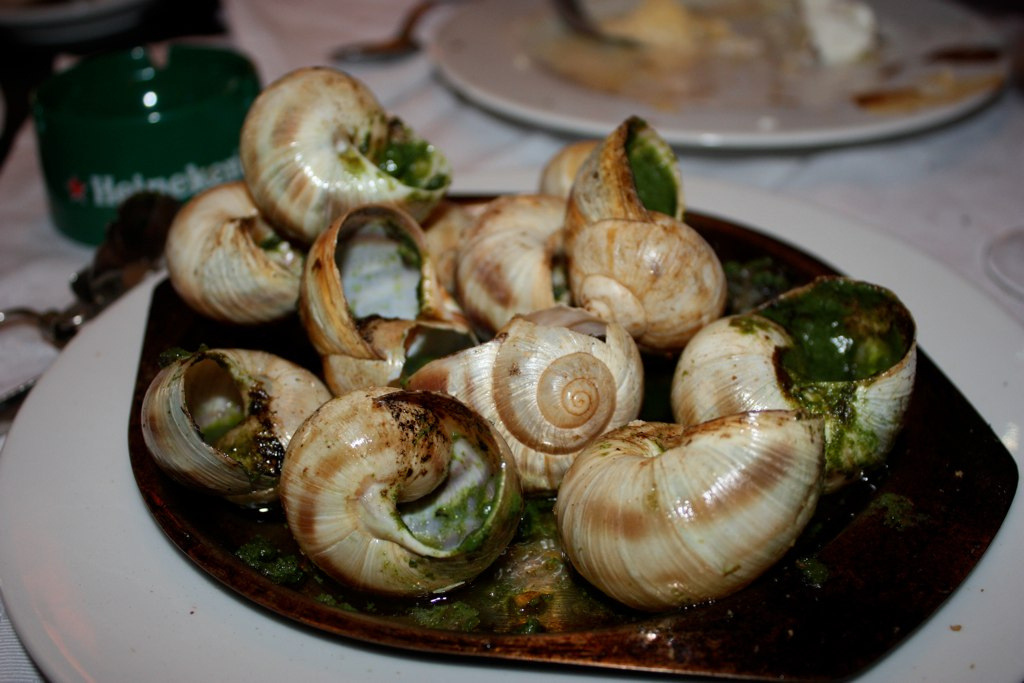
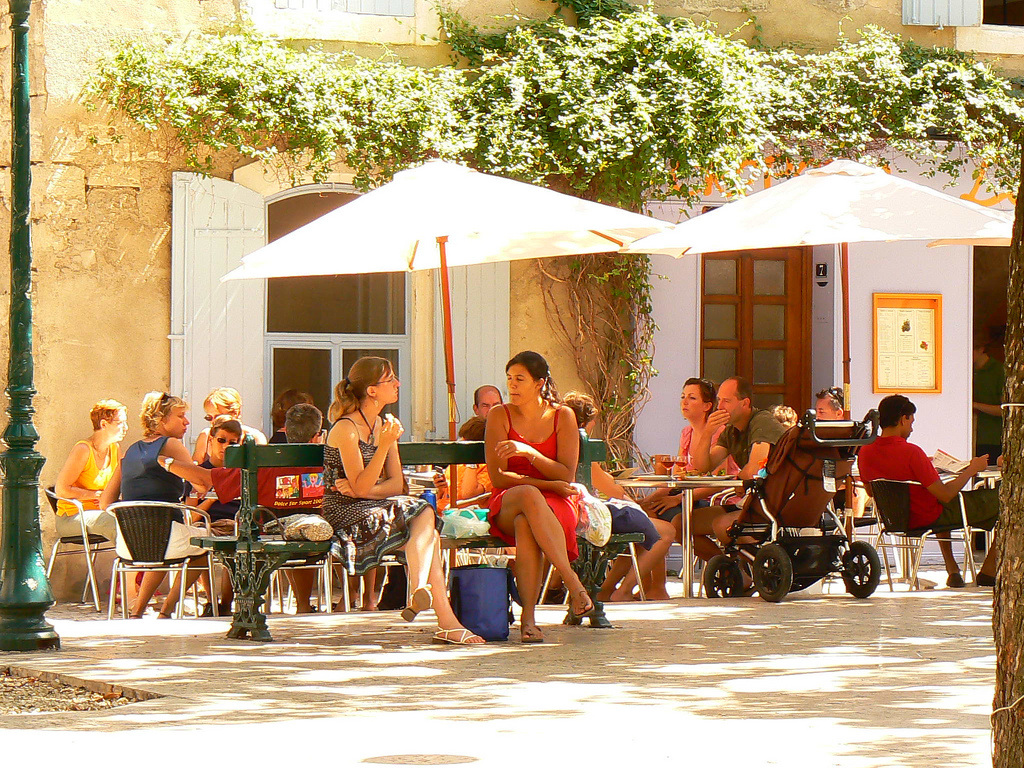
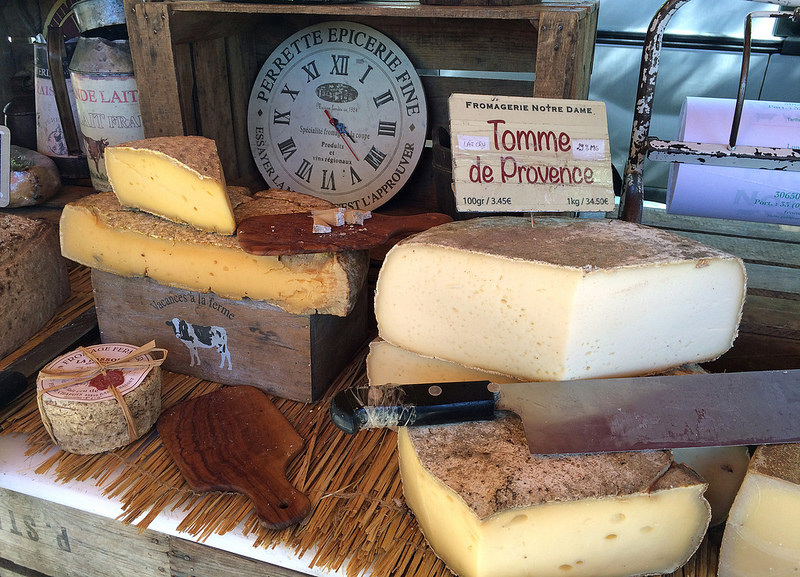
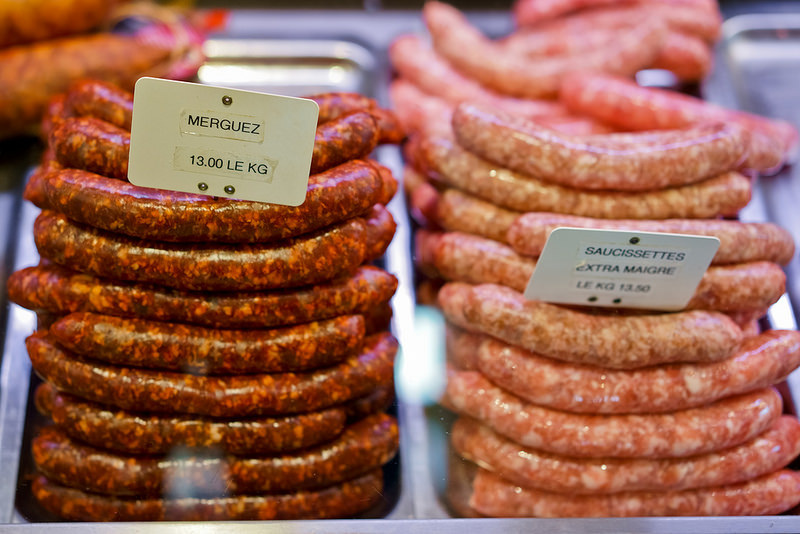
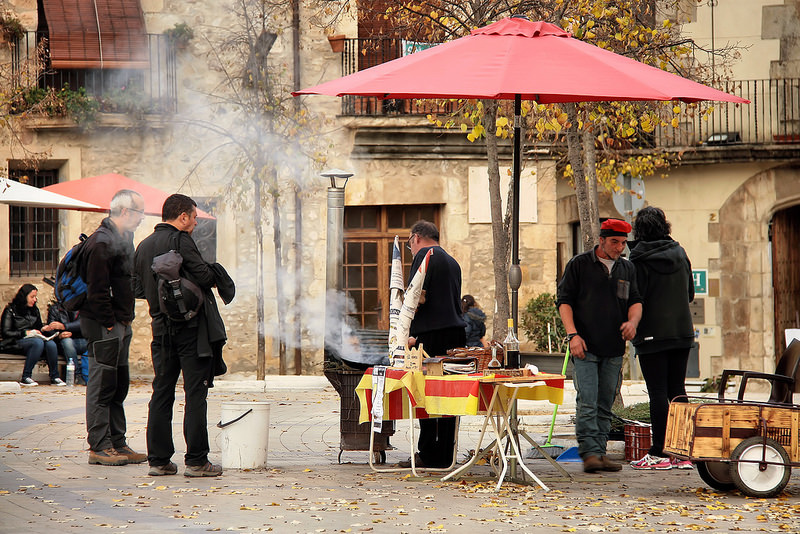
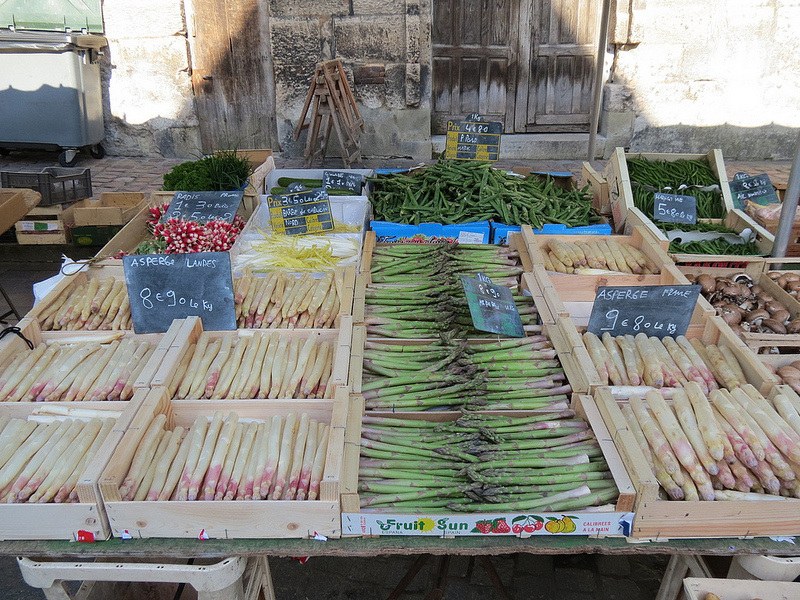
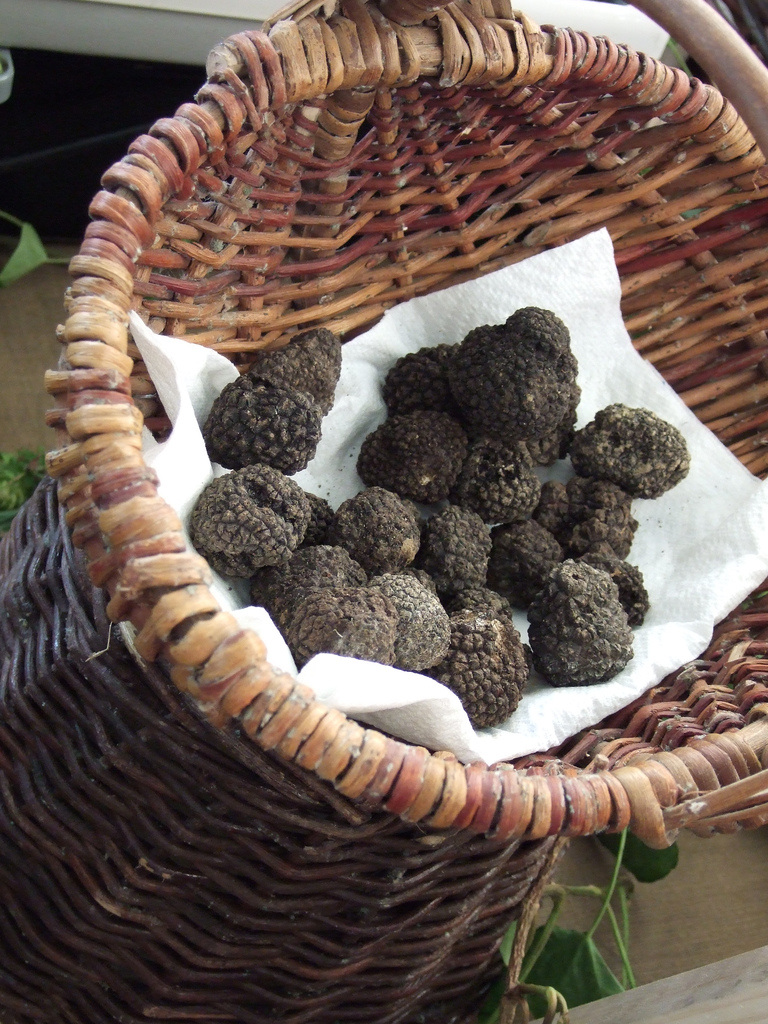
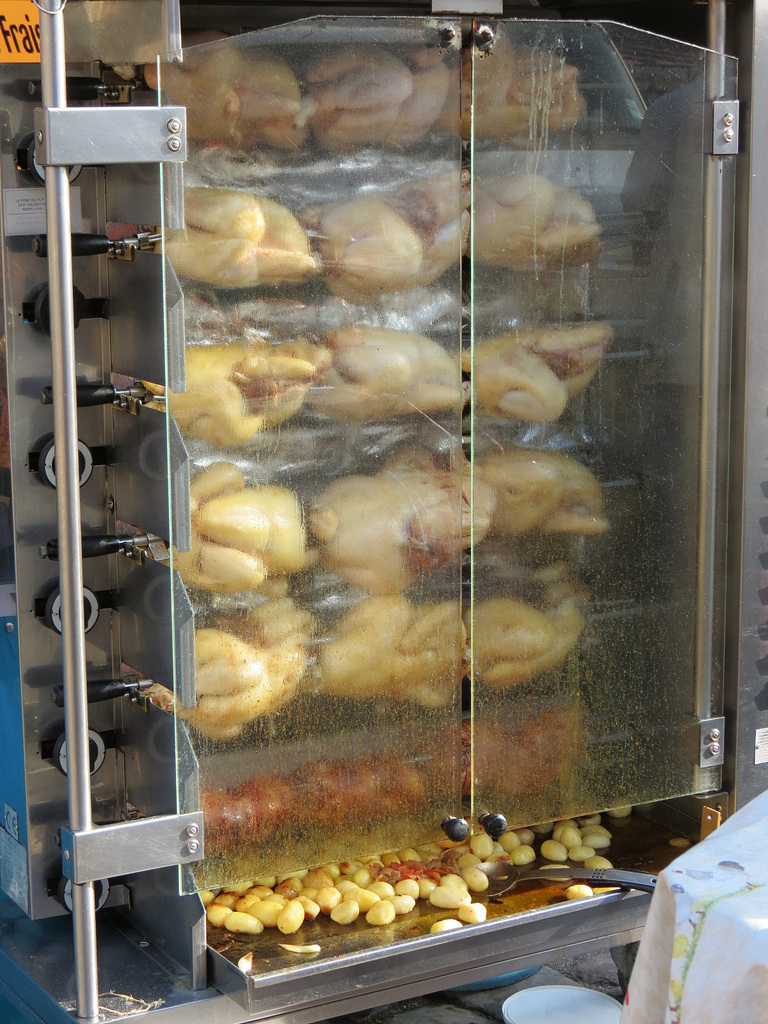
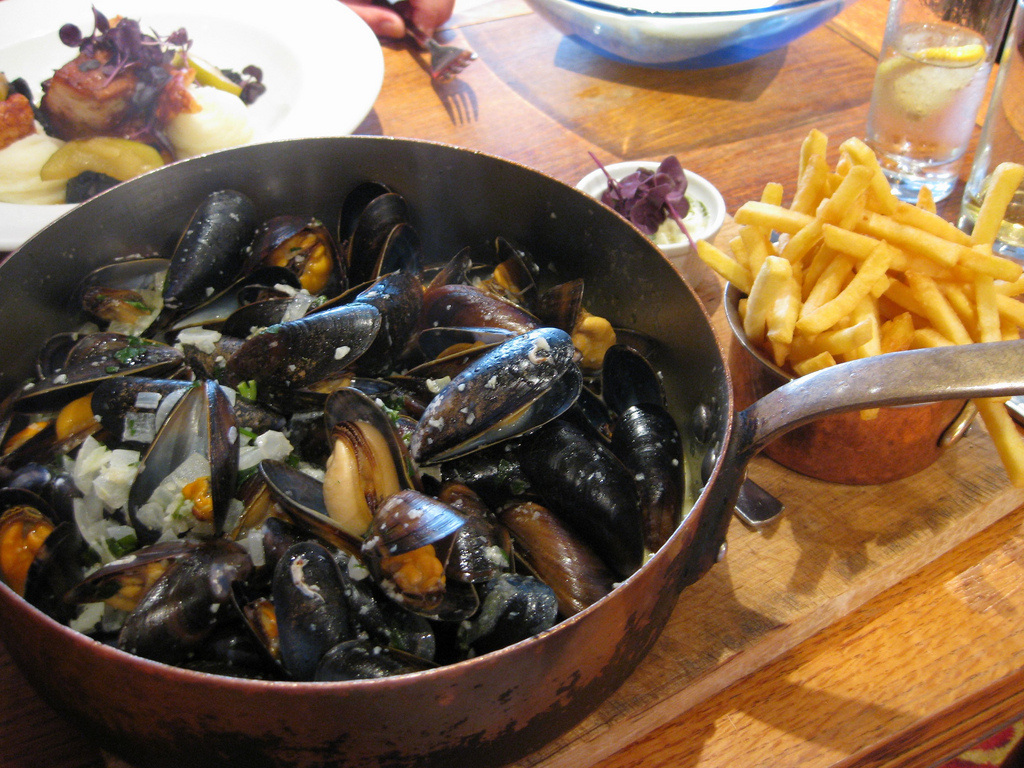
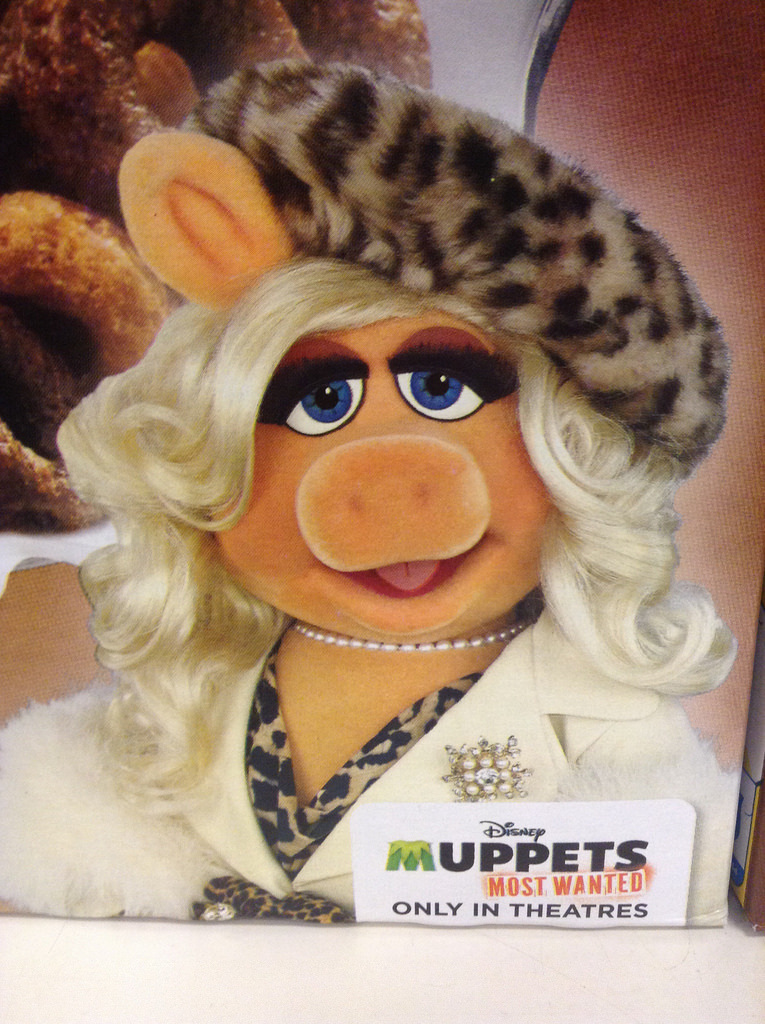

 RSS Feed
RSS Feed
